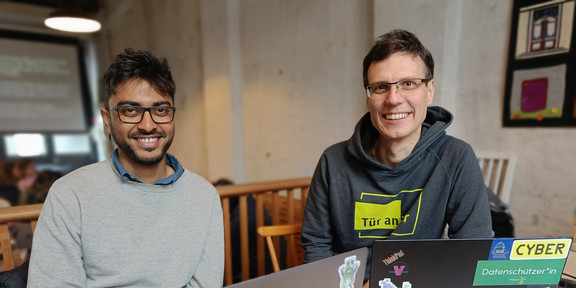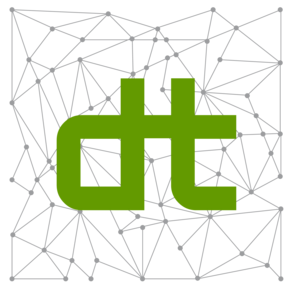Prototype: OMoS – open-source approach to migration without language barriers

For the past two semesters, the Chair of Digital Transformation has been working with Tür an Tür - Digitalfabrik gGmbH from Augsburg on an innovative project that aims to revolutionize migration counseling. The goal of the project “Online Migration Counseling without Language Barriers” (OMoS for short) is to enable location- and language-independent counseling for immigrants with the help of modern open-source technologies.
The concept was awarded the Innovation Prize of the City of Munich in July 2024, which underlines the significance and potential of the project (more information can be found here – in German). In a co-creation phase with the third largest city in Germany, the team is currently working on the implementation of a digital welcome center.
Use of open source software and prototyping
A key requirement of the project is the exclusive use of open source software to ensure data sovereignty and data protection, while at the same time making the results as reusable as possible. The current OMoS prototype consists of an app, a content management system (CMS) and a dedicated chat backend. The approach is based on a so-called “retrieval augmented generation” (RAG), which automatically classifies and processes incoming messages according to language and type. This enables precise and efficient assignment and communication regardless of the languages spoken by those seeking advice. The focus of the practice partner, Tür an Tür, was on the practical aspects of implementation and the fine-tuning of technical components.
Technical development: insights from Goutam Das
Goutam Das, a student assistant at the Chair of Digital Transformation, did a great deal of preparatory work for the implementation of the project. The development of a so-called Retrieval Augmented Generation (RAG) pipeline is crucial for the implementation of the project in order to provide the Large Language Model (LLM) with precise and contextual information. On this basis, the LLM can generate relevant answers. Therefore, Goutam tested various vector databases at the chair to evaluate how information can be stored more efficiently and made available by RAG. In addition, he worked intensively on optimizing retrieval and chunking methods to optimize the data flow in the RAG pipeline. It also carried out the switch from the Haystack framework to the Langchain platform to enable better integration into the existing architecture.
Collaboration with the Tür an Tür - Digitalfabrik gGmbH and the Integreat App
The development of OMos is part of the “Integreat” research project. More information can be found here:


